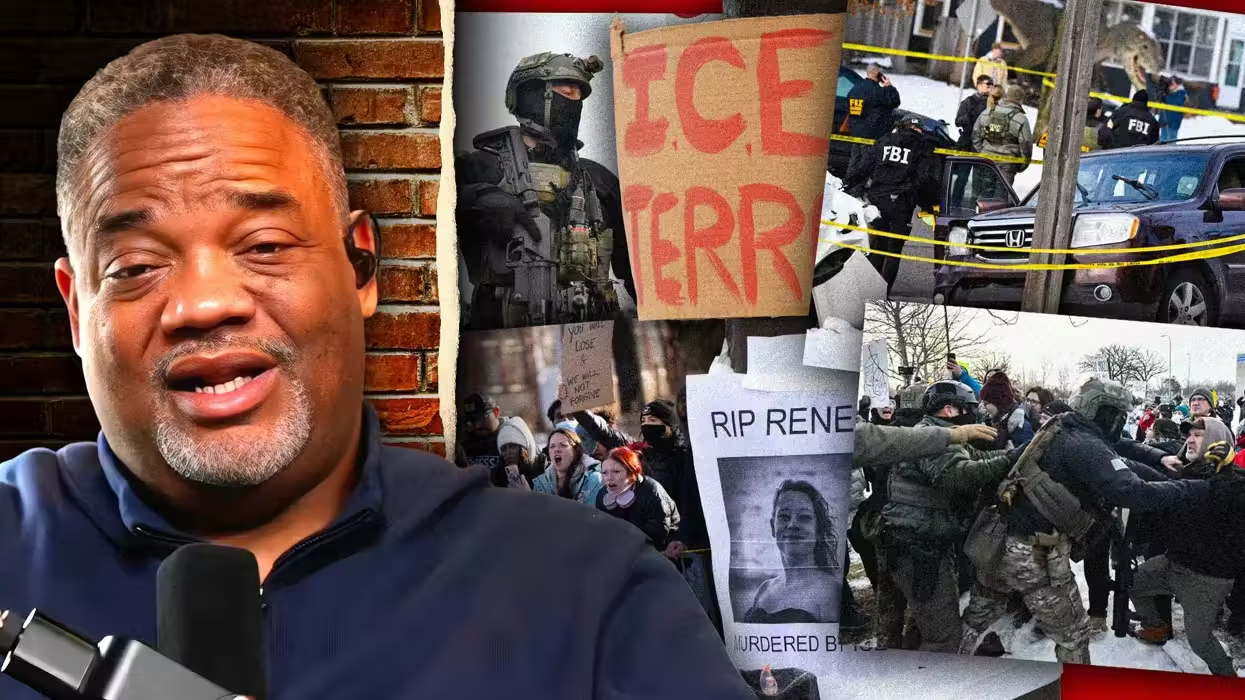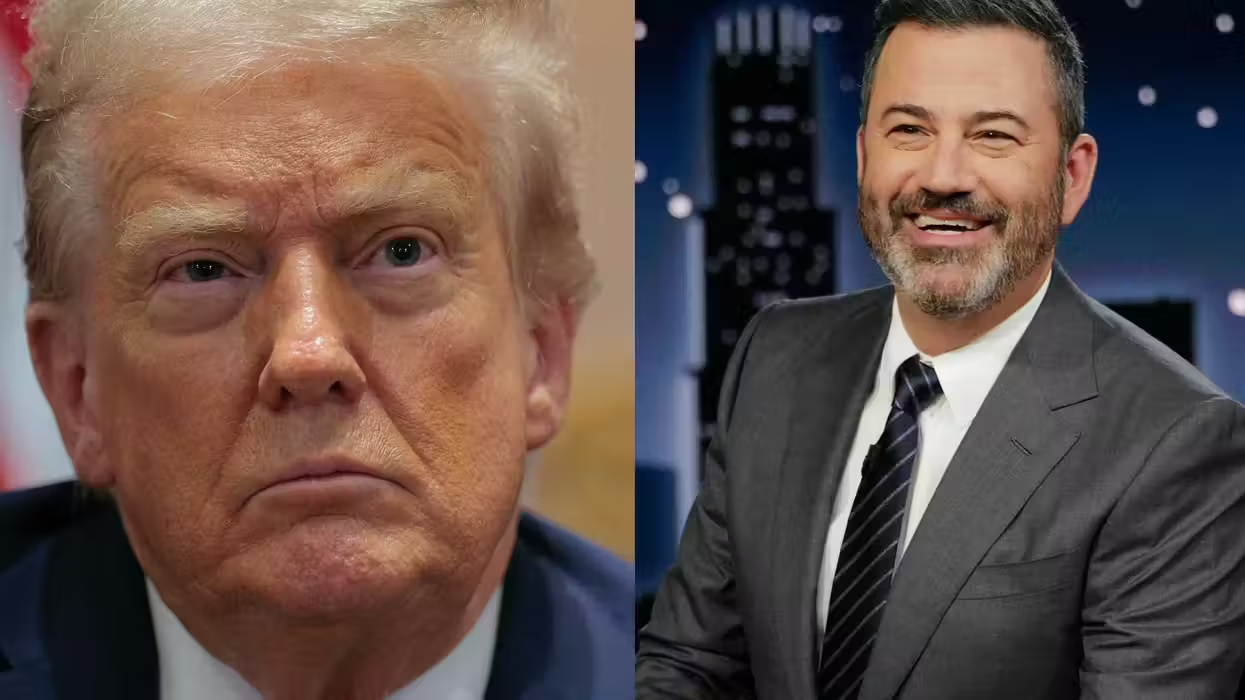Federal agents waved the white flag Saturday and retreated from Gold Butte, Nev., releasing some 389 “trespass cattle” that had been rounded up as the result of an ongoing land dispute between rancher Cliven Bundy and the United States.
 Rancher Cliven Bundy has won a temporary reprieve from the federal government. (Getty Images)
Rancher Cliven Bundy has won a temporary reprieve from the federal government. (Getty Images)
But as Bundy family members celebrate what they call a decisive victory in their decades-long struggle against the federal government, the legal battle between the Clark County rancher and the U.S. Bureau of Land Management is far from over.
"He’s still making these arguments about how the federal courts don’t have jurisdiction because the United States doesn’t own the land in question,” Dan Greenberg, an attorney and president of the Advance Arkansas Institute, a nonprofit that advocates for public policy based on the principles of limited government, told TheBlaze.
“He’s losing on all these claims,” Greenberg said, noting that Bundy’s arguments have already been rejected twice by the courts. “Unfortunately for him, his arguments – that he simply doesn’t recognize federal authority – will not be recognized in the courts. ... The legal theory here that Mr. Bundy’s using is radical in its implications.”
'That's Fed Land'
Bundy continues to defy two court orders, one from 1998 and one from 2013, requiring that he remove his cattle from property recognized by the state of Nevada and the courts as belonging to the United States government. The court orders were issued after Bundy’s grazing permit was canceled in 1994, one year after he “fired” the Bureau of Land Management, refusing to pay to graze his cattle after the agency converted public land into a protective habitat for the state's desert tortoise.
Bundy claims he has a right to graze his cattle on the nearly 600,000 acres of government-owned land in Gold Butte, Nev., located west of his 150-acre ranch in Bunkerville, Nev., because his family has lived in the area since the 1880s.
"My family has preemptive, adjudicated livestock water rights filed with the state of Nevada. They were established in 1877 when the first pioneers entered the valley. Among those first pioneers were my grandparents from my mother's side," he told TheBlaze early Thursday. "My father either bought or inherited his Nevada state livestock water rights and I, in turn, have done the same."
Bundy's father "started ranching in this valley in 1954," he said. This detail is noted in the 1998 court ruling against Bundy.
The Bureau of Land Management, part of the U.S. Department of the Interior, didn't come into existence until 1946, when the General Land Office and Grazing Service combined.
The Bundys have never owned the disputed land. They hold no deed and they've never paid property taxes on it. Rather, prior to “firing” the Bureau of Land Management, the Bundy family held a grazing permit, which, according to the Taylor Grazing Act of 1934, does not bestow the holder with permanent grazing rights or land ownership.
[sharequote align="center"]“But even if he tried [to pay], we wouldn’t be authorized to collect. That’s fed land.”[/sharequote]
Bundy told TheBlaze his rights predate the grazing act.
"The beneficial uses were established before the Taylor Grazing Act of 1934. The rights were adjudicated after 1934. Preemptive, adjudicated, beneficial use, Nevada state water law and custom and culture are the key to this issue," he said.
In 1993, Bundy did not pay to renew his permit and it was canceled one year later. The rancher has claimed he tried — without success — to pay grazing fees to Clark County.
A spokesman with the Clark County Recorder’s Office told TheBlaze that he had no record of Bundy trying to pay the county a grazing fee.
 Federal law enforcement officers open a gate to allow a convoy of cattle to get through at the Lake Mead National Recreation Area near Overton, Nev. Thursday, April 10, 2014. (AP)
Federal law enforcement officers open a gate to allow a convoy of cattle to get through at the Lake Mead National Recreation Area near Overton, Nev. Thursday, April 10, 2014. (AP)
“When I pull up his name it says no record found,” the spokesman told TheBlaze. “But even if he tried, we wouldn’t be authorized to collect. That’s fed land.”
Clark County Assessor Michele Shafe said she has no record of Bundy trying to pay grazing fees to the county, either.
“But if he tried to do that back in 1993,” she said, “we wouldn’t know about that. None of us were here. Anyway, that’s not county property.”
'It’s Nevada Land'
Since that time, Bundy has refused to recognize federal authority in the state of Nevada.
“At the moment of statehood, the people of the territory [now known as Nevada] became people of the United States with the Constitution, with equal footing to the original 13 states,” Bundy said on Glenn Beck's radio program Monday. “They had boundaries around them, a state line. And that boundary was divided into 17 subdivisions, which were counties. I live in one of those counties: Clark County, Nevada.”
“And in that county, Clark County, Nevada, we elect our county commissioners, which is the closest to 'we the people' and we elect the county sheriff and we pay him to do what? Protect our life, liberty and property. I’m a citizen of that county. I abide by all the state laws,” he said. “It’s not [Bureau of Land Management] land. It’s Nevada land.”
A U.S. District Court in 1998 addressed Bundy's argument and ruled against it.
“Bundy argues the federal … government cannot have authority over lands ‘inside an admitted state,’” the U.S. District Court for the District of Nevada said in its decision. “That argument must fail because federal lands located within states are federal territories under federal jurisdiction.”
The ruling cites the Federal Land Policy and Management Act of 1976, which outlines how public lands are to be administered by the Bureau of Land Management:
The term "public lands" means any land and interest in land owned by the United States within the several States and administered by the Secretary of the Interior through the Bureau of Land Management, without regard to how the United States acquired ownership, except
(1) lands located on the Outer Continental Shelf; and
(2) lands held for the benefit of Indians, Aleuts, and Eskimos.
43 U.S.C. § 1702(e). The Bunkerville Allotment where Bundy is grazing his livestock falls within the definition of "public lands" administered by the Secretary of the Interior through the BLM.
The court also reaffirmed that the government has held the property in question since the Treaty of Guadalupe Hidalgo in 1848 when Mexico ceded the territory to the U.S.
“The public lands in Nevada are the property of the United States because the United States has held title to those public lands since 1848, when Mexico ceded the land to the United States,” the court ruled, citing United States v. Gardner, a 1997 case that established that the Equal Footing Doctrine does not give Nevada ownership of public lands within its border but instead ensures equality in sovereignty and political standing.
The U.S. District Court in 1998 ordered Bundy to remove his cattle from Gold Butte. He refused. A second court ruling in 2013 ordered the same. He again refused, eventually prompting last week's standoff with the federal government.
'Simple Trespass'
Samuel A. Rosado, an attorney who works for a New Jersey state agency that handles similar matters, said Bundy's legal arguments are similar to those who call themselves "sovereign citizens," individuals who believe they are not subject to federal, state or local laws.
“Bundy tends to be all over the place,” Rosado said in an email to TheBlaze. “He said he had vested grazing rights prior to the [Bureau of Land Management’s] formation. He then said he is not a citizen of the U.S. and only recognizes himself as a citizen of Nevada. So now he does not recognize the laws (and by assumption the property ownership) of the United States government. Then he alleged Nevada reclaimed virtually all federal land in the state via state statute in 1979.”
It should be noted that Bundy told Beck on Monday that he is not familiar with the "sovereign citizen."
[sharequote align="center"]"No different than me suing Occupy Wall Street because they set up tents on my front lawn."[/sharequote]
Rosado said the fact that the Bundys paid grazing fees beginning in 1954, as noted by the courts and by Bundy, suggests the rancher at one point recognized federal authority.
“I find it very difficult to argue that Bundy can claim he had vested rights, when he is continuously paying for use of the land,” Rosado said, adding that the 1996 case Bundy regularly cites in his favor, U.S. v. Nye County, Nev., “utterly debunks” the rancher’s claim that he’s not bound by federal law.
"The Nye County ruling established unequivocally that federal land within Nevada belonged to the U.S government," Rosado said, adding it's "notable because the court was the federal district court of Nevada."
 Federal law enforcement officers block a road at the Lake Mead National Recreation Area near Overton, Nev. Thursday, April 10, 2014. (AP)
Federal law enforcement officers block a road at the Lake Mead National Recreation Area near Overton, Nev. Thursday, April 10, 2014. (AP)
Rosado said the government's case against Bundy is fairly cut-and-dried.
Contrary to the rancher's arguments in court, the Bureau of Land Management "is not bringing an action against Bundy under the Endangered Species Act, but a tort action for trespass," Rosado said. "Bundy's discussions of 'foreign commerce' is therefore irrelevant."
“The U.S. government’s entire action involves simple trespass. It has nothing to do with the desert tortoise. Bundy stopped paying his grazing permit, therefore he lost his right to enter federal land,” Rosado said. “By keeping his cows there, he is trespassing on federal land. That's basically it. No different than me suing Occupy Wall Street because they set up tents on my lawn without my permission.”
At least five states, Colorado, Idaho, Nevada, Nebraska and Utah, have proposed plans to transfer control of public land from the federal government to the states. Nevada even established a task force in 2013 to deal with this very problem. The Nevada Land Management Task Force, comprising 17 state commissioners, hopes to present its plan for the transfer to the Legislative Committee on Public Lands by Sept. 1, 2014. That means there is some precedent for the outcome Bundy is eventually hoping for.
'The Door Isn't Closed'
For now, however, a relative calm has fallen on Gold Butte and Bunkerville, the return of armed federal agents increasingly unlikely. But Washington’s decision over the weekend to cease its roundup operations does not mean it has abandoned its plans to exercise authority over Nevada's public lands.
“The door isn't closed,” Bureau of Land Management spokesman Craig Leff said after federal agents retreated from the area. “We'll figure out how to move forward with this."
Aided by armed militiamen, some of whom were reportedly in Nevada at Bundy's invitation, the veteran rancher has won himself a brief reprieve.
But it's unlikely he'll win any meaningful legal battles in the near future.
“Losing in court and defying court orders won't get you want in the long-term,” Greenberg, the pro-limited government Arkansas attorney, told TheBlaze. “I think Mr. Bundy is a victim of politics – and in particular a victim of the Bureau of Land Management, which I think has a very different land use agenda than he does – but I worry about the prudence of the path that he has chosen.”
“As a general matter, people who signal that they are willing to consider the use of force against government run the risk of receiving, from the government, a much more aggressive signal back,” he said.
—
Follow Becket Adams (@BecketAdams) on Twitter

 Rancher Cliven Bundy has won a temporary reprieve from the federal government. (Getty Images)
Rancher Cliven Bundy has won a temporary reprieve from the federal government. (Getty Images)






